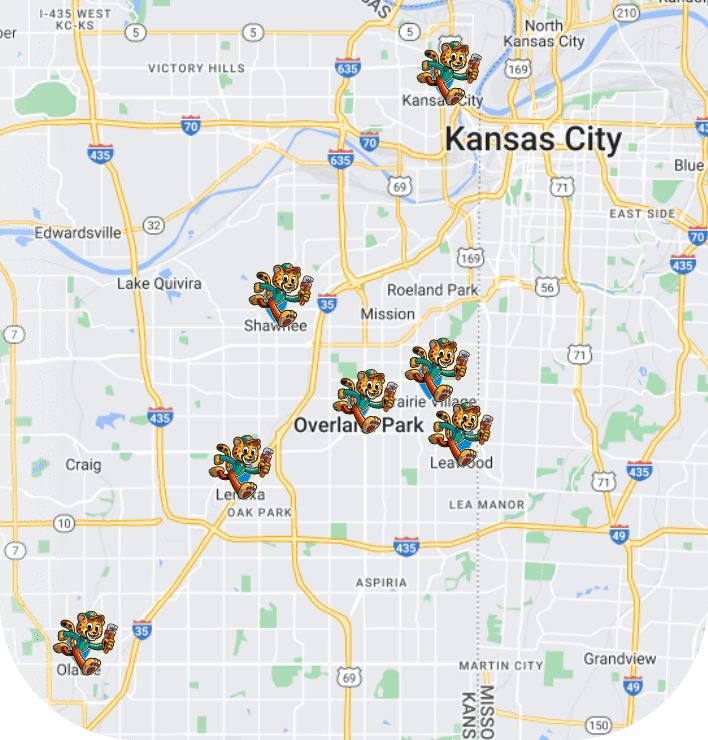Plumbing problems happen all the time and the harsh weather conditions from the winter season will only contribute to more problems. The frigid temperatures put your plumbing at risk of freezing, which if left untreated can result in costly damages. Your plumbing requires proper maintenance no matter what time of year, which is why it’s time fix some much-needed plumbing problems before spring comes into bloom.
What Could Potentially Be Wrong with Your Plumbing
Leaks and clogs are common plumbing nuisances that happen at any time, but the problem is that most of them can happen unnoticed until it’s too late. While you may have winterized your plumbing for the worst, plumbing problems before spring arrives can still arise and it’s best to catch them before the snow melts. While winter puts your plumbing at risk of freezing, spring can overwhelm your pipes and sump pump. It’s always better to be proactive versus reactive when it comes to your plumbing. To spare yourself a plumbing catastrophe, here are eight common plumbing repairs you may need before spring.
- Low water pressure. If you’ve ever experienced a disappointing shower, it’s probably because your plumbing has low water pressure. If water doesn’t gush out of your faucets like it used to, it could be because of a clogged aerator. If cleaning the screens of your faucets does nothing, however, then the issue may have to due with a leak or clog in your plumbing. On rare occasions, low water pressure can also be a sign that’s something is wrong with the main water line. While less pressure may be nothing more than a nuisance, it shouldn’t be ignored, as it often indicates another issue with your plumbing.
- Slow drains. One of the most common signs of a clog, if you experience slow drains, it’s important to clear the clog immediately. While clogs anytime of the year are problematic, clogs during the winter season can be especially dangerous as it makes your pipes more vulnerable to freezing. Most clogs can be solved with a drain cleaning, but if the slow drain still persists, the issue may be much deeper inside your plumbing. Stubborn clogs usually stem from a damaged sewer line and will require a licensed plumber to repair it.
- Running toilet. Your toilet is one of the most used water fixtures in the house, and it’s prone to leaking which could cost you in your next water bill. A constantly running toilet is a common, but costly problem. Since there are several culprits for a running toilet, it’s important to have a plumber check the problem right away. Some issues such as a faulty flapper or fill valve, can be an easy fix, other problems, however, will require professional help.
- Busted garbage disposal. While it may be tempting to put aside the cost of repairing the garbage disposal later, a damaged garbage disposal harm your plumbing. Most culprits for a busted or damaged garbage disposal usually also clog the drain, and are an invitation for unwanted pests like drain flies.
- Dripping faucets. Often it’s easier to ignore that one annoying dripping faucet, but a dripping faucet wastes water and costs you money. While it’s encouraged to let your faucets drip during the winter season to avoid a freezing, a faucet that drips on its own usually indicates something is wrong with the faucet. Faucets come with a water-tight seal that prevents water from escaping, but over time those can wear down and the result is the notorious annoying drip. Replacing the washer is a common solution for a dripping faucet and is best down by a plumber who has specialized tools.
- Leaky pipes. Leaks are a problem no matter what time of year, but they can be especially problematic during winter when it’s still below freezing. It’s best to catch a leak as soon as possible as it can lead to costly water damages and mold. Watch for water spots, bubbling paint or discolored wallpaper, and puddles of water. If you smell something foul and musty, call a plumber immediately.
- Damaged sump pump. Your sump pump is an important appliance that can often be forgotten during the winter season, but it still works to keep your basement flood-free. While you may experience little to no rain before spring, it’s important to inspect your sump pump for damages. Test to see if it works by filling the tank to the top with water. If it doesn’t start immediately, it may be time to schedule a repair.
- Old water heater. The winter season can put a lot of strain on your water heater, which is why it’s a good idea to inspect your water heater. Over time, mineral deposits can form inside the tank and will require a flush to remove them periodically. Since water heaters require little maintenance, it’s easy to forget about them, but a water heater in need of maintenance can result with a busted tank flooding gallons of water in your basement.
Take Care of Your Plumbing Before the Snow Melts
While you may be counting down the days until spring, it’s best to take some precaution with your plumbing. A clog or leak, if left untreated, can result in costly damages, or worse, a flooded home. Any plumbing problem is best repaired as soon as possible, but some issues are difficult to detect without professional help. If you want to start the spring season right, make sure to schedule one last plumbing inspection before it’s too late.









